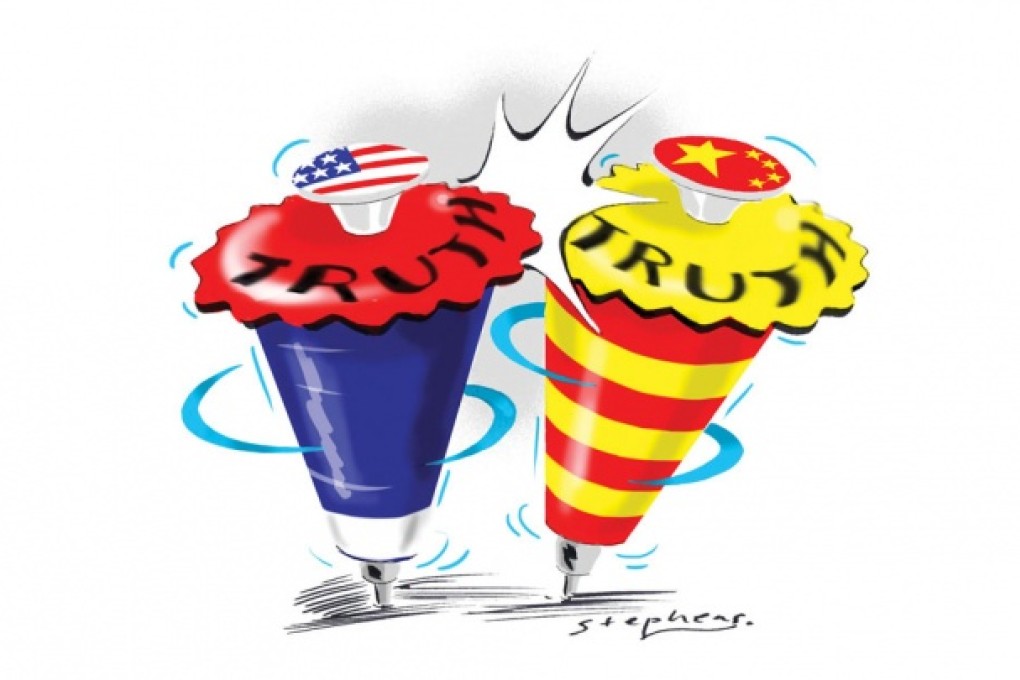On the eve of their summit, China and US are playing to script
Philip Cunningham says if the petulant - and predictable - war of words between China and the US over June 4 is any indication, it's unlikely this week's summit will see any breakthrough

On the eve of the much-anticipated Sunnylands summit between Xi Jinping and Barack Obama, government mouthpieces in the US and China had a brief but revealing spat. Not surprisingly, given the mutual penchant to spin the truth for political reasons, each side smugly portrayed itself as being in the right and the other in the wrong. Furthermore, each side reverted to type, the US as the holier-than-thou finger-wagger, China as the self-styled victim of conspiratorial slander.
US State Department spokeswoman Jen Psaki's statement that "the 24th anniversary of the violent suppression of demonstrations in Tiananmen Square on June 4 prompts the United States to remember this tragic loss of innocent lives" might seem a reasonable statement at first glance, but it's full of holes. Who is remembering what? The "United States"?
The power of the message gets lost in the hypocrisy of the pot calling the kettle black
Let's assume it's the collective wisdom of the State Department talking. It has a team of spinmeisters who present the world in a way that is intended to be highly favourable to US interests. Its information-manipulation teams skilfully ignore, downplay or whitewash the "inconvenient truths" when it is politically expedient to do so, and June 4 is made quick work of, if not thrown under the memory bus, when other bilateral issues rise to the fore, whether it be trade, terrorist concerns or a presidential visit to Beijing.
The government of China has a lot to answer for in regard to the brutal crackdown of June 4, 1989. Especially to its own people. But it does not take marching orders from, nor does it have to answer to, the US State Department.
A smart response would have been to study the message, but ignore the messenger. Instead, the response was petulant if not borderline hysterical. "We urge the US side to discard political prejudice, correctly treat China's development, immediately rectify its wrongdoings and stop interfering in China's internal affairs so as not to sabotage China-US relations," said foreign ministry spokesman Hong Lei .
China is far from being the only country that reflexively cringes when the US pretends to hold the high moral ground. Fatigue from the finger-wagging is understandable if one considers how craven and corrupt the source of the latest sanctimonious outburst is. The US State Department is the diplomatic organ of a powerful war machine that has rained millions of bombs on innocent people in Vietnam, Cambodia, Laos, Iraq, Afghanistan and other countries since Mao Zedong and Richard Nixon first conspired to cover up their crimes through an opportunistic political realignment in 1972.